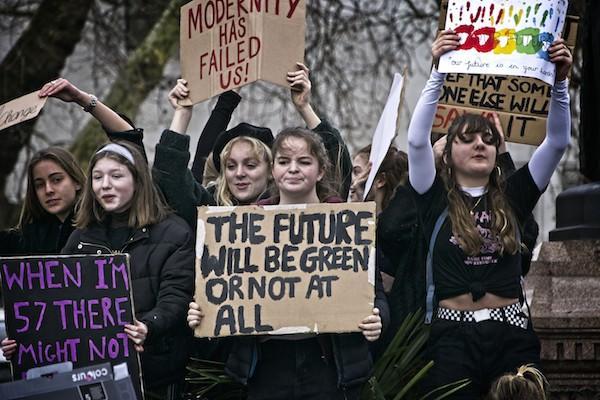The 2024 presidential race is gearing up to be a repeat showdown between former President Donald Trump and current President Joe Biden, leaving many swing state voters feeling disillusioned. However, third-party candidates might provide a viable alternative for those seeking options beyond the two dominant parties. As NBC News correspondent Shaquille Brewster points out, these voters could significantly influence the election’s outcome.
Evaluating the Role of Third-Party Candidates
Amidst a highly polarized election season, third-party candidates are emerging as a potential choice for voters unhappy with the primary contenders. These candidates bring fresh perspectives and platforms, appealing to those desiring a new approach to governance.
Influence on Swing State Electorate
Swing state voters, in particular, might find third-party candidates attractive as they seek to make their voices heard in a tightly contested election. These voters have the power to sway results in crucial battleground states, making their support essential for third-party candidates aiming to make a significant impact.
Third Parties’ Contribution to Political Dynamics
Although third-party candidates often face significant challenges in national elections, they can still play a pivotal role in shaping the political landscape. By providing an alternative to the traditional two-party system, third-party candidates foster a more diverse and inclusive political dialogue.
Looking Forward to November
As the 2024 presidential election draws closer, the potential influence of third-party candidates cannot be overlooked. Swing state voters, in particular, may hold the key to these candidates’ success and the future direction of American politics.
third-party candidates present a unique opportunity for voters to express their dissatisfaction with the current political environment and advocate for change. As the election approaches, the impact of these candidates on swing state voters and the overall outcome remains to be seen.
The ‘Double Haters’ Phenomenon: A Decisive Factor in the Presidential Election
As the presidential election nears, a new term has surfaced to describe a significant voter group – ‘double haters’. These individuals harbor negative sentiments towards both major candidates, creating a unique voting dilemma. This behavior could be a critical factor in determining the election’s outcome.
<h3 style="text-align: left;">Decoding the ‘Double Hater’ Mindset</h3>
<p style="text-align: left;">‘Double haters’ are voters who hold unfavorable views of both major candidates. They may disagree with their policies, question their integrity, or deem them unfit for the presidency. While this sentiment is not new in political campaigns, its prevalence in the current election cycle is particularly noteworthy.</p>
<h4 style="text-align: left;">Effect on Election Outcomes</h4>
<p style="text-align: left;">When a substantial portion of the electorate falls into the ‘double hater’ category, it can significantly impact election results. These voters might abstain from voting, support a third-party candidate, or even switch their allegiance to a different party. Their choices can lead to unexpected election outcomes, as seen in previous elections where third-party candidates received notable support from disillusioned voters.</p>
<h3 style="text-align: left;">Strategies for Engaging ‘Double Haters’</h3>
<p style="text-align: left;">For candidates and campaign strategists, understanding the ‘double hater’ mindset is crucial. Here are some practical tips for addressing this voter demographic:</p>
<ul>
<li style="text-align: left;">Acknowledge their concerns and incorporate them into campaign messaging.</li>
<li style="text-align: left;">Propose realistic solutions to the issues that matter most to ‘double haters’.</li>
<li style="text-align: left;">Engage in sincere dialogue to build trust and credibility with these voters.</li>
</ul>
<h3 style="text-align: left;">Historical Examples</h3>
<p style="text-align: left;">Several recent elections have been influenced by the presence of ‘double haters’. A notable example is the 2016 presidential election, where a significant number of voters expressed disdain for both major candidates, leading to surprising results in key battleground states. Candidates who can effectively appeal to ‘double haters’ have a better chance of securing their votes.</p>
<h3 style="text-align: left;">Personal Perspective</h3>
<p style="text-align: left;">As a voter, I have experienced the dilemma of being a ‘double hater’ in past elections. It is a challenging position, as neither candidate fully aligns with my values and beliefs. However, I believe every vote counts, and it is essential to carefully consider each candidate's pros and cons before making a decision.</p>
<h3 style="text-align: left;">Conclusion</h3>
<p style="text-align: left;">The ‘double hater’ phenomenon is a significant factor that could shape the upcoming presidential election's outcome. Candidates who can effectively engage with this voter demographic and address their concerns have a better chance of securing their support. As the election approaches, it will be interesting to see how ‘double haters’ influence the final results and ultimately determine the nation's next leader.</p>The post Voters being called ‘double haters’ may determine the outcome of the presidential election. appeared first on lawyer.bet.




